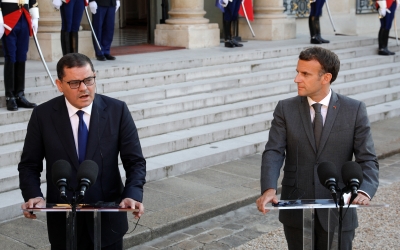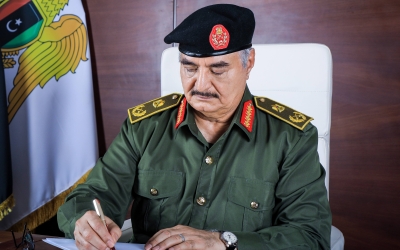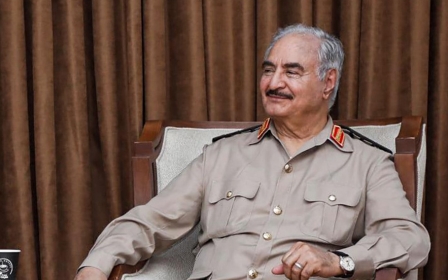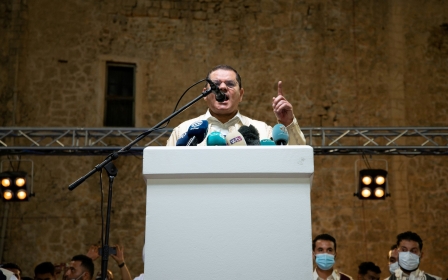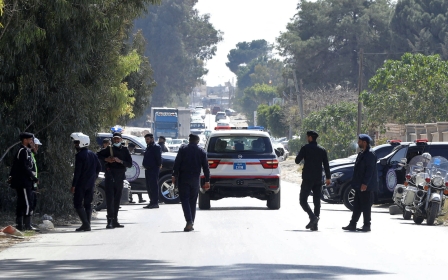World powers press for Libya elections even as they leave room for delay
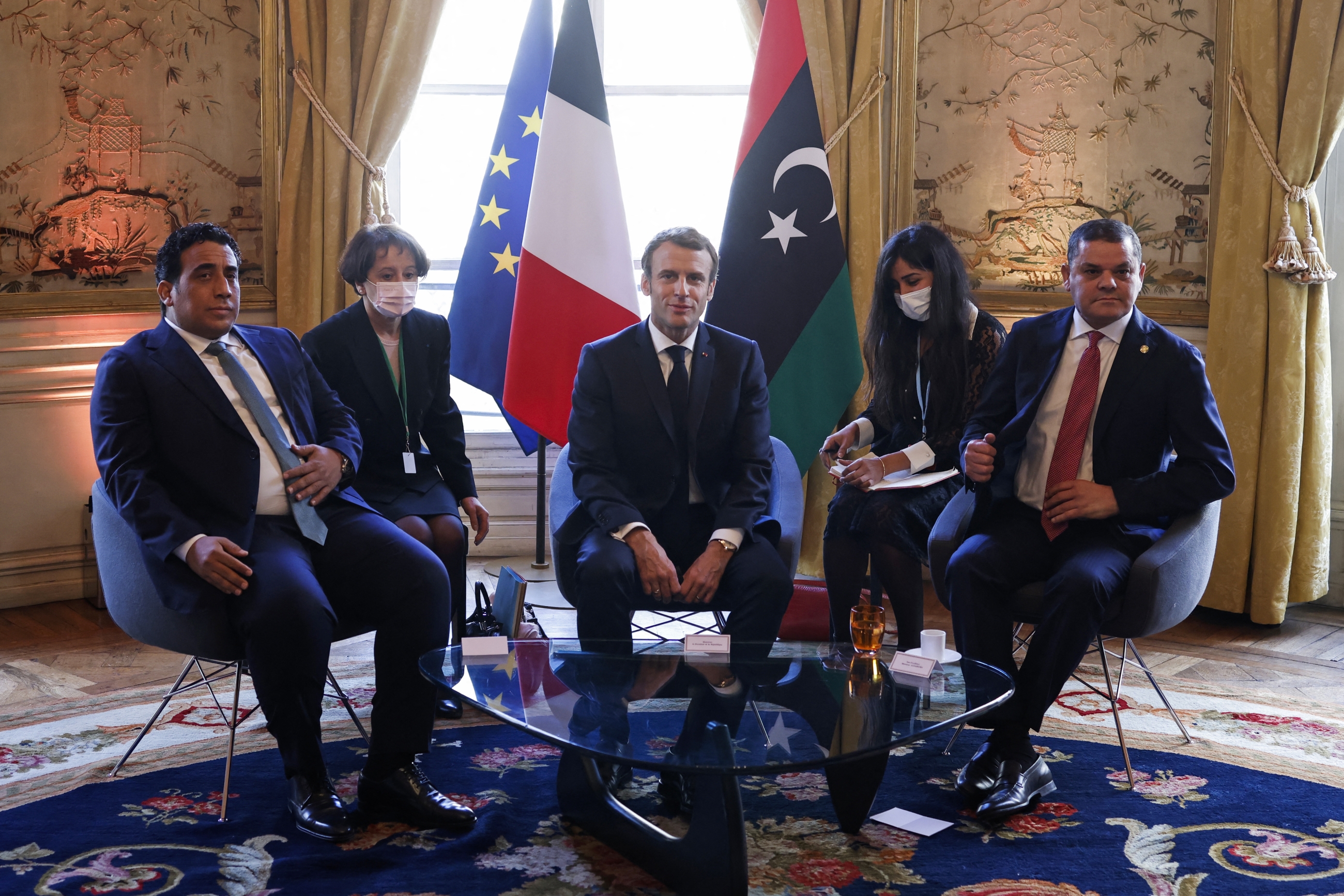
World powers gathered in Paris on Friday to give their final backing for a plan to hold elections in Libya on 24 December, demanding the removal of all foreign fighters and issuing a warning to those who threaten to disrupt the vote.
Libya has been roiled by conflict since the overthrow of long-time leader Muammar Gaddafi in 2011. While a UN-brokered ceasefire in October of last year has brought some stability to the country, it remains divided between warring factions and militias.
Much of Libya's east is under the control of Khalifa Haftar, a former CIA asset and army chief who broke with the country's internationally recognised government and launched an assault on the capital in 2019.
Fighting in Libya soon devolved into a vicious proxy conflict, with France, the UAE, Egypt, and Russia aiding Haftar to varying degrees, while Turkey supported the government in Tripoli.
Speaking at a press conference after Friday's diplomatic gathering, French President Emmanuel Macron said Turkey and Russia must withdraw their foreign mercenaries from Libya "without delay".
New MEE newsletter: Jerusalem Dispatch
Sign up to get the latest insights and analysis on Israel-Palestine, alongside Turkey Unpacked and other MEE newsletters
The UN estimates that 20,000 foreign fighters remain in the war-torn North African country. They include several thousand Russian Wagner Group mercenaries, pro-Turkish Syrians, Chadian and Sudanese fighters, and regular Turkish troops.
"The presence of foreign fighters remains one of several persistent roadblocks to unification and stability in the country," Paolo Napolitano, a senior analyst with Dragonfly Intelligence, told Middle East Eye.
On Thursday, forces loyal to Haftar said 300 of their allied foreign mercenaries would depart the country, at the request of Paris, though the nationality of the fighters was not specified and no timeline was given.
Macron said the move was "a first step", before going on to call for the removal of all fighters:
"Turkey and Russia must also withdraw without delay their mercenaries and their military forces, whose presence threatens the stability and security of the country and the whole region."
The presence of regular Turkish troops and their Syrian proxies has been a particularly sore point for France, which has been at loggerheads with Ankara over broader tensions in the Eastern Mediterranean region.
"France can't tolerate a Turkish military presence in Libya," Jalel Harchaoui, a Libya expert and senior fellow at the Global Initiative Against Transnational Organized Crime, told MEE.
Turkey, having successfully pushed back Haftar’s forces, has shown little willingness to withdraw its troops, who are stationed at air and naval bases throughout the country.
Ankara, which sent only a low-level delegation to the summit on Friday, has been keen to stress that its forces were invited to Libya by the internationally recognised government at the time, while Russian and other fighters have been aiding breakaway factions.
"There is a certain amount of reluctance on the Turkish side. It's a good thing that we can see a first withdrawal, it will serve as an example. Things have started," German Chancellor Angela Merkel said during the press conference held in Paris.
At the same time, the Kremlin, which has supported Haftar, denies sending any soldiers or mercenaries to Libya.
'Potential for violence is high'
The presence of foreign fighters is just one issue that could hinder the push to ensure elections in Libya are held in keeping with the UN timetable for 24 December.
Libya's main political actors have been squabbling among themselves over the laws governing a vote, and who should even be allowed to run.
The communique issued after the summit emphasised the need for an inclusive election process open to all candidates.
That has been seen as a nod to allowing the current interim prime minister, Abdul Hamed Dbeibeh - who initially promised not to seek office - to stand for election. It may also open the way for divisive figures such as Haftar and Saif al-Islam, son of the late Gaddafi, to run for president.
With more candidates expected to register in the coming days, Italian Prime Minister Mario Draghi said Libya's politicians must agree on an electoral law as soon as possible:
"I hope that this electoral law is drawn up with the agreement of everyone and that everyone gets together, not in the coming weeks, but in the coming days, because it is urgent if you are going to hold elections on December 24."
Already there are signs that some factions in Libya may be positioning themselves to dispute the election if it goes ahead.
Khaled-al-Mishri, head of Libya's High Council of State, and a close ally of Turkey, on Tuesday called for a boycott of the vote after previously claiming the electoral laws had been written by Haftar's foreign backers.
"There is almost no foreseeable scenario in which the results of the presidential election will be accepted as legitimate by all parties," Napolitano, from Dragonfly Intelligence, told MEE.
"Any result will almost certainly be disputed by one group or another. Given that results are likely to be contentious, the potential for a return to armed violence is high."
On Friday the powers gathered in Paris called on stakeholders in Libya to "respect their commitments towards holding elections on 24 December 2021".
In a statement issued after the summit, they warned: "Persons or entities inside or outside Libya who attempt to obstruct, challenge, manipulate or tamper with the electoral process and political transition will be held accountable and may be subject to UN sanctions."
The Paris summit has been seen as one final attempt by world powers to push Libya's politicians to keep their promise of holding elections on the scheduled date.
"All Libyans agree that there will be elections on December 24," Mohamed al-Menfi, chairman of the Libyan Presidential Council, assured leaders at the summit.
Dbeibah told attendees on Friday that "organising simultaneous elections on the scheduled date is a historic goal that we will strive to achieve".
Still, even as global powers urged Libyans to hold the vote as planned, it appeared they might be leaving an opening for delay.
One portion of the communique issued after the summit said the powers backed an electoral process for legislative and presidential elections "starting" on 24 December.
Harchaoui said that such a shift of emphasis, including by leaders at the press conference following the summit, indicated a "softening" with regards to the deadline.
He now predicts that the first round of presidential elections will "most likely" not take place this year.
"A postponement, probably of several months, will have to be revealed to the public," he said.
Middle East Eye delivers independent and unrivalled coverage and analysis of the Middle East, North Africa and beyond. To learn more about republishing this content and the associated fees, please fill out this form. More about MEE can be found here.


